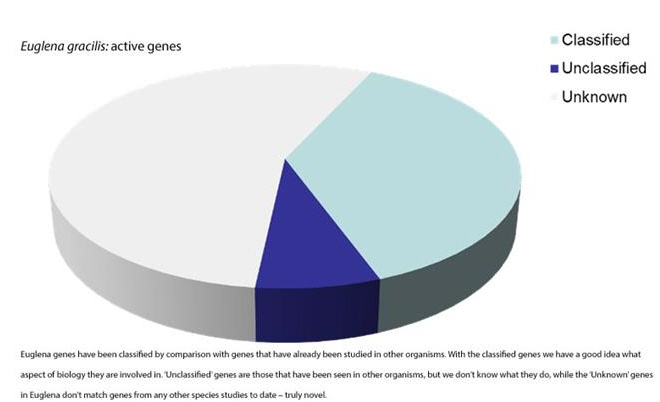The genetic information in what we think of as simple algae is in fact enormous, which complicates definition of what these organism are capable of and has prompted the science community to largely focus of simpler microorganisms (bacteria, fungi, viruses). Scientists now project that Euglena has at least 32,000 active, protein encoding genes, significantly more than humans who have approximately 21,000 and that Euglena has the genetic information to make many different natural compounds, though what they are or what they can do remains a mystery. Nearly 60% of the active genes don’t match those found in any other organism studied to date.

Source: John Innes Centre
The team also found that different sets of genes become active when Euglena is grown in the dark to when it is grown in the light. This indicates that Euglena can dramatically shift its metabolism depending on its environment, which reflects its’ ability to live successfully in very varied environments.
The team from John Innes Centre identified candidate genes in the Euglena transcriptome for all the pathways and metabolic processes that one would expect in a motile, photosynthetic organism. They also discovered unexpected capacity for producing and modifying carbohydrate polymers and the generation of as-yet unknown natural products.






Comments